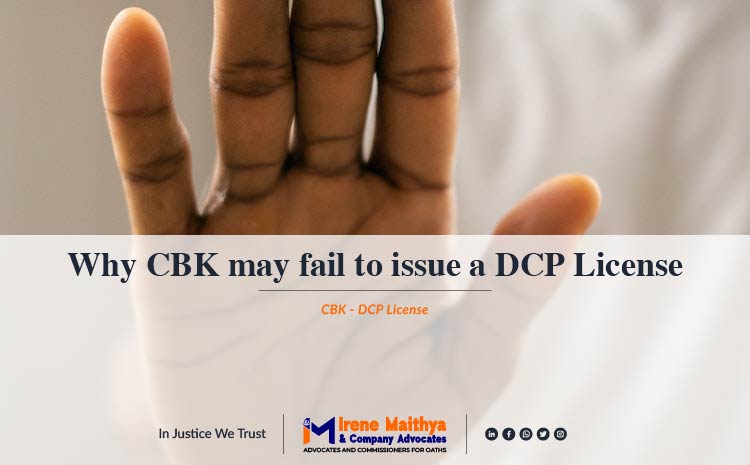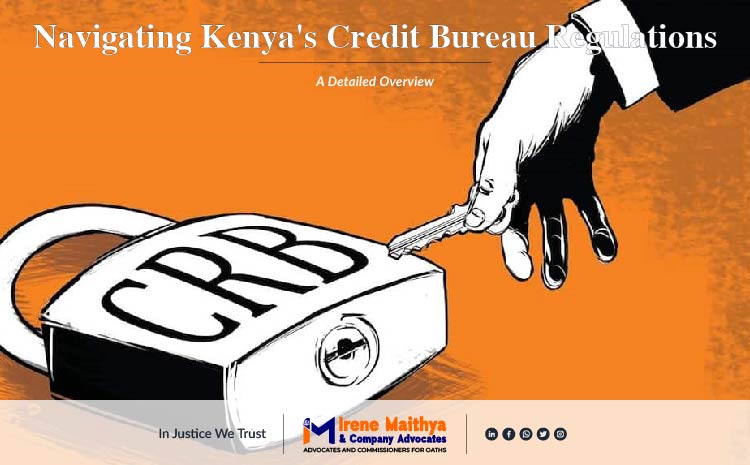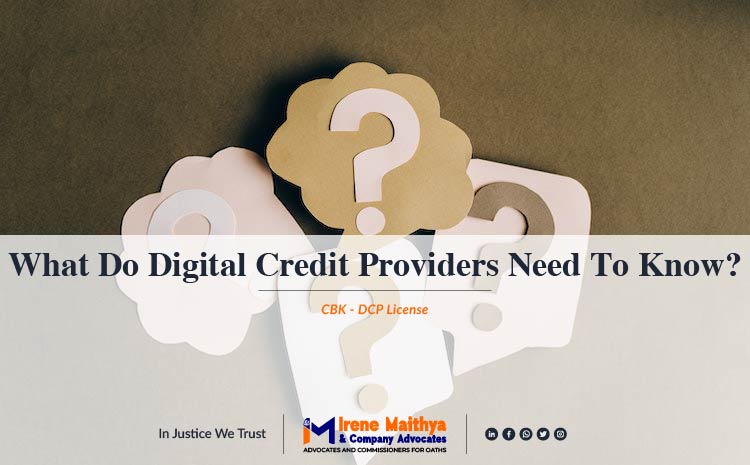
Incomplete Application:
If the application submitted by the digital credit provider is incomplete or lacks necessary documentation, the CBK may not be able to process and approve the license.
Non-Compliance with Regulations:
If the digital credit provider does not meet the regulatory requirements set forth by the CBK for issuing DCP licenses, such as financial stability, consumer protection, or data privacy standards, the license application could be rejected.
Lack of Transparency:
Failure to provide transparent and accurate information about the digital credit services, terms, fees, and repayment processes could lead to a denial of the license.
Inadequate Technology Infrastructure:
If the digital credit provider's technology infrastructure is insufficient to ensure secure and reliable digital credit transactions, the CBK may withhold the license.
Unsustainable Business Model:
If the business model of the digital credit provider is not deemed financially viable or poses risks to consumers, the CBK may choose not to issue the license.
Non-Compliance with Consumer Protection Measures:
If the digital credit provider does not demonstrate a commitment to fair lending practices, responsible lending, and protection of consumer rights, the license application may be declined.
Insufficient Data Protection Measures:
Inadequate measures to protect consumer data and privacy could be a reason for the CBK to withhold a DCP license.
Concerns about Over-Indebtedness:
If the CBK has concerns that the digital credit provider's services could contribute to over-indebtedness among consumers, it might hesitate to grant the license.
Negative Regulatory History:
If the digital credit provider has a history of non-compliance with financial regulations or has faced legal issues in the past, the CBK may be reluctant to issue a license.
Unresolved Legal or Regulatory Issues:
If the digital credit provider is currently facing legal or regulatory challenges, the CBK might delay or deny the license until these issues are resolved.
Examples of Unresolved Legal or Regulatory Issues
- Pending Lawsuits
- Regulatory Investigations
- Non-Compliance with Consumer Protection Laws
- Data Privacy Breaches
- Dispute with Borrowers
- Unclear Ownership Structure
- Lack of Compliance History
- Insufficient Anti-Money Laundering (AML) Measures
- Failiure to Address Regulatory Feedback
- Undisclosed Partneships
- Ethical Concerns
Ethical or Social Concerns:
If the digital credit provider's practices raise ethical or social concerns that are not in line with the CBK's standards, the license application could be rejected.
Market Saturation:
If the CBK believes that the digital credit market is already saturated or that granting another license could lead to unhealthy competition or systemic risks, it might decide against issuing the license.
Note:
To find full details of the CBK Digital Credit Providers Licensing Requirements List, Check out our previous blogpost. Also, click here to visit CBK website.








Leave a comment